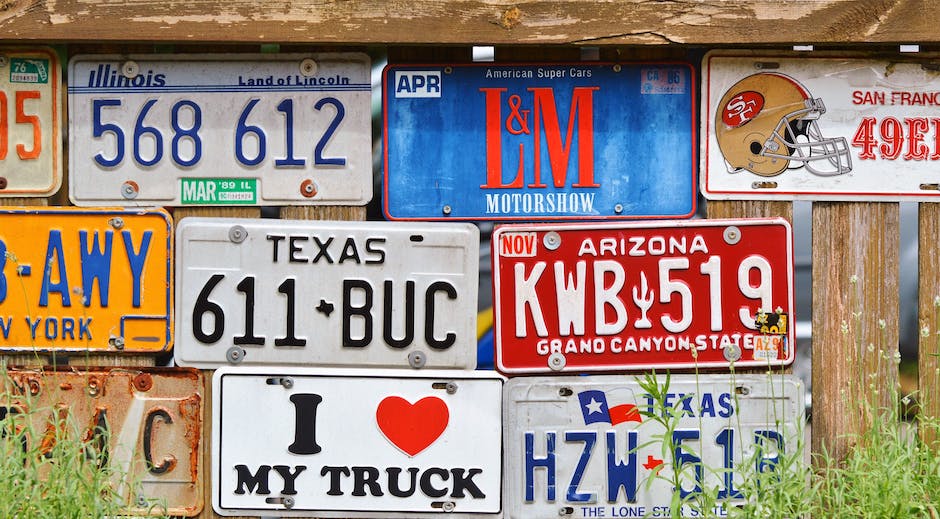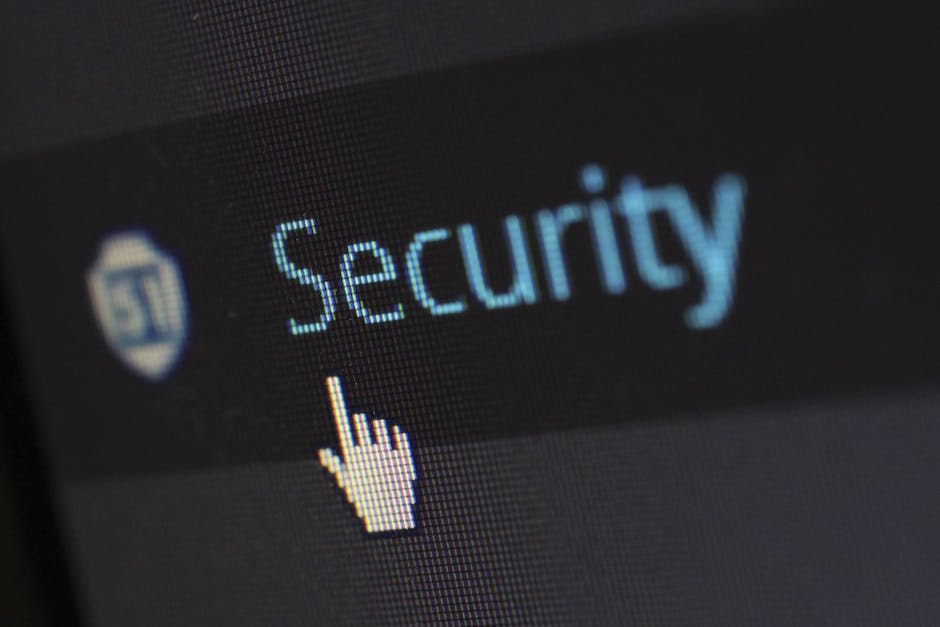Understanding the importance and process of property licensing can drastically change the game for landlords in Maryland. As a property owner, it is essential to comprehend the basics of property licensing in Maryland, how it differs from other states, and the process involved in acquiring one. By delving further into the benefits of licensing properties, landlords can leverage certain advantages, such as legal protection, financial incentives, and enhanced credibility among potential tenants. Furthermore, it is imperative to know how to navigate property licensing issues and violations to potentially protect your investment and maintain a strong relationship with tenants.
The Basics of Property Licensing in Maryland
Understanding Property Licensing in Maryland
Property licensing in Maryland is a legal requirement that allows landlords to carry out rental activities within the state. It’s governed by Title 17, Subtitle 3, Part III of the Maryland Code of the Public Local Laws. This legal statute mandates landlords to obtain certification ensuring their rental properties meet the minimum living standards set by local and state housing and health departments. These standards vary across counties, making Maryland’s licensing laws unique compared to other states where housing guidelines might be uniform throughout the state.
Key Requirements for Licensing
To obtain a license, landlords in Maryland must ensure their properties comply with the safety standards outlined in the Maryland Building Performance Standards (MBPS), Maryland Fire Prevention Code, and local housing codes. Some key requirements involve proper sanitation, emergency escape routes, safe electric services and appliances, suitable locks for doors and windows, and an adequate supply of heat and hot water.
Another crucial requirement is a lead risk reduction certificate for rental properties built before 1978. This certificate proves the landlord has taken necessary precautions to reduce the risk of lead poisoning, which is mandatory due to Maryland’s Lead Poisoning Prevention Program.
Landlords also need to pay a non-refundable application fee when submitting their license application to the Department of Housing and Community Development or a local licensing agency.
Consequences for Operating Without a License
Operating a rental property without a valid property license in Maryland is a serious violation of the local laws. Non-compliant landlords may face significant penalties including heavy fines and/or imprisonment. Furthermore, they can also be legally barred from collecting rent during the period of non-compliance, which could hinder their business operations.
Failure to prevent lead hazards is deemed particularly serious due to health implications and can result in significant financial penalties, cease rental orders, increased scrutiny from regulatory authorities, and potential lawsuits from affected tenants.
Benefits of Licensing
Obtaining a property license in Maryland comes with various advantages for landlords. It grants landlords the legal right to rent out their properties while simultaneously ensuring the properties meet minimum safety, health, and building standards—thus offering a safer living environment for tenants.
Properly licensed properties can improve landlord-tenant relations by letting tenants know that they reside in an approved, inspected, and compliant property. Additionally, landlords with licensed properties have the legal backing to assert their rights in landlord-tenant disputes, a factor that can act as a protective buffer in legal situations.
Finally, being a licensed landlord boosts the rental property’s marketability, as tenants are more likely to rent properties that comply with local housing codes and health regulations.
Operating rental properties in Maryland necessitates abiding by specific regulations, among which property licensing is paramount. The main purpose of these licenses is to provide a legal safety net for both landlords and tenants, ensuring a well-structured and harmonious rental environment within the state.

Benefits for Landlords to License their Properties
Safeguarding Legal Rights
Of all the reasons why Maryland landlords should obtain a license for their properties, securing legal protection holds the highest importance. Without proper licensing, landlords open themselves up to hefty fines and potential legal disputes. This can result in complications ranging from minor disagreements to full-fledged litigation between landlords and tenants. A license, in essence, manifests into a potent tool that preserves the landlord’s legal right to manage their property and challenges, if any.
Financial Incentives
Licensing a property also unlocks numerous financial incentives and grants that would otherwise not be available to unlicensed landlords. For instance, in Maryland, landlords with a licensed property can enjoy tax benefits and can apply for state-funded rehabilitation programs or grants. Additionally, in case of any property damage, having a property license can expedite insurance claims.
Industry Standards Compliance
Maryland’s landlord licensing process ensures properties meet all pertinent state and local codes regarding housing and safety. Licensed properties need to pass a property standards inspection – a general health and safety check – which must certify the property’s living standards before granting the license. This ensures the landlord’s property complies with industry standards, providing them peace of mind and ensuring the tenants’ well-being.
Increased Credibility and Tenant Trust
Maryland landlords who license their properties gain added credibility with potential renters. Having a licensed property signals to renters that the landlord is serious about providing safe, well-maintained accommodations. This could lead to a broader pool of potential tenants, faster rental times, and potentially higher rental income.
Maintaining Property Value
A licensed property is checked regularly for any potential maintenance issues. Landlords are required to keep their properties up to the standard defined by law, ultimately helping maintain or even increase the property’s value over time. Consequently, this can result in higher resale values if the landlord ever decides to sell.
Fewer Complaints from Tenants
Through the licensing process, landlords are expected to rectify all issues identified during the property inspection. This proactive approach to maintenance can lead to fewer complaints from tenants, less time spent dealing with repairs and conflict, and overall easier landlord-tenant relations.
Support from Local Authority
Landlords with licensed properties also get support from local authorities. If you have a license, local housing departments can support you in case of disputes with your tenants, for example by offering mediation services or providing advice on managing difficult situations.
There are considerable benefits for landlords to get a property license in Maryland, including legal protections, financial advantages, enhanced professional standing, and increased tenant confidence. Such a license not only strengthens your stability in the rental market but also facilitates your operations and attracts prime tenants.

Process of Property Licensing in Maryland
Underscoring the Significance of Property Licensing in Maryland
Property licensing in Maryland is not just a legal requirement; it also provides many benefits that landlords can enjoy. Holding a property license is a testament that your property satisfies all the mandatory health, safety, and building codes. This acts as an assurance to potential tenants that your rental property is a secure and livable space.
The Property Licensing Process in Maryland
The process for obtaining a property license in Maryland usually involves a thorough inspection of the property by the relevant housing or health department. Properties are assessed against a checklist of state-defined standards — this can range from building safety aspects such as the condition of walls and ceilings, to public health considerations like rubbish disposal and pest control.
Applying for a property license also includes filling out the necessary paperwork and paying an application fee. The application form asks for details on the property, including its location, the number of units it has, and the types of units (studio, one-bedroom, etc). After submission, the application goes through an approval process which could take several weeks, depending on the county. The license, once granted, usually needs to be renewed every two or three years, depending on the regulations of the specific county.
Benefits of Licensing to Landlords
Licensing their properties provides landlords with certain assurances that can positively impact their business. For starters, a license demonstrates to potential renters that a property is safe and adheres to the necessary housing standards. This can instill confidence in renters and make a property more attractive.
Property licensing also offers protection to landlords in legal situations. For instance, if a tenant claims that their living conditions are not up to standard, a valid property license can serve as proof that the landlord is following all necessary regulations.
Furthermore, licensed properties are often listed on county websites and other rental platforms, giving them additional exposure to potential tenants. This can help reduce the time it takes to fill a vacancy.
Consequences of Non-Compliance
On the flip side, failing to license rental properties in Maryland can come with significant risks for landlords. These include potential fines, the inability to legally collect rent, and a higher likelihood of litigation if accidents occur on unlicensed properties.
Property Licensing in Maryland: A Must for Landlords
Becoming a landlord in Maryland entails not just owning a rental property but also ensuring it’s legally recognized through licensing. This vital step establishes the groundwork for a successful real estate business within the state’s law. The licensing of rental properties not only ensures the safety and livability conditions are met for the tenants but can also serve as a shield of protection for landlords against possible legal predicaments. Although the licensing process might seem intimidating, it’s worth noting that it’s an investment that offers significant benefits and legal security.

Handling Property Licensing Issues and Violations
The Significance of Property Licensing: A Closer Look
One might inquire why landlords in Maryland must go through the trouble of licensing their properties. The answer lies within the Maryland Rental Property License law administered by the Department of Housing and Community Development. This legislation safeguards landlords by legally recognizing their rental business and creates a framework that encourages compliance with safety and maintenance standards. Ultimately, the law fosters a favorable environment for tenants, ensuring they reside in safe and well-maintained properties.
The Licensing Process
Obtaining a rental license involves inspection of property by state-certified inspectors. They check whether the rental property is free from safety hazards, has running water, heat, electricity, and meets other necessary living standards. The license is granted after the property passes inspection, giving the landlord legal permission to rent out the space.
Handling Licensing Issues and Violations
If a landlord fails to meet regulatory standards, various issues may arise, including disputes with tenants and legal ramifications. If a landlord is in violation, they may be issued with a fine or legal action by the local or state government. Repeat offenses may risk the landlord’s license being revoked, causing a halt in rental income.
In such cases, landlords have the right to a dispute resolution process. They can rectify the problem, appeal the violation, or challenge the inspector’s findings in court. Many landlords find it beneficial to hire legal representation to navigate through these proceedings.
Renewal and Compliance
License renewal is also an important aspect. A rental license in Maryland is valid for two years, and landlords need to apply for renewal 60 days before its expiry. Failure to renew the license on time may result in penalties or fines. It also leaves the landlord open to tenant disputes, as renting without a valid license is considered illegal.
Maintaining compliance with safety and maintenance standards is important between renewals. Regular checks and property upkeep helps prevent violations that can lead to penalties or risks losing the license.
Why License Matters
Licensing isn’t merely a legal obligation but a way for landlords to prove their commitment to providing a safe and quality living environment, improving their reputation and encouraging tenant trust. It helps protect the landlord’s interests by demonstrating their commitment to maintaining their properties, potentially attracting reliable and long-term tenants.
In the case of disputes, having a rental license can protect landlords. For instance, if a tenant takes legal action for inadequate living conditions, a landlord can use their compliance with licensing conditions as part of their defense.
In Conclusion
The process of licensing, being aware of potential violations, and taking appropriate measures to prevent these issues are crucial for every Maryland landlord. Moreover, understanding how to deal with disputes, the implications of a suspended license, and the importance of timely license renewal are important steps in successful property management.

Throughout this discussion, it is evident that acquiring a property license in Maryland offers substantial benefits to landlords. With legal protection, potential financial incentives, and increased credibility among tenants, the process not only safeguards their investment but also creates a more harmonious landlord-tenant relationship. Moreover, a good understanding of how to handle property licensing issues and violations is essential in ensuring the smooth running of rental operations. Therefore, landlords are highly encouraged to invest time in understanding property licensing in Maryland and treating it as a necessary aspect of their rental business.
